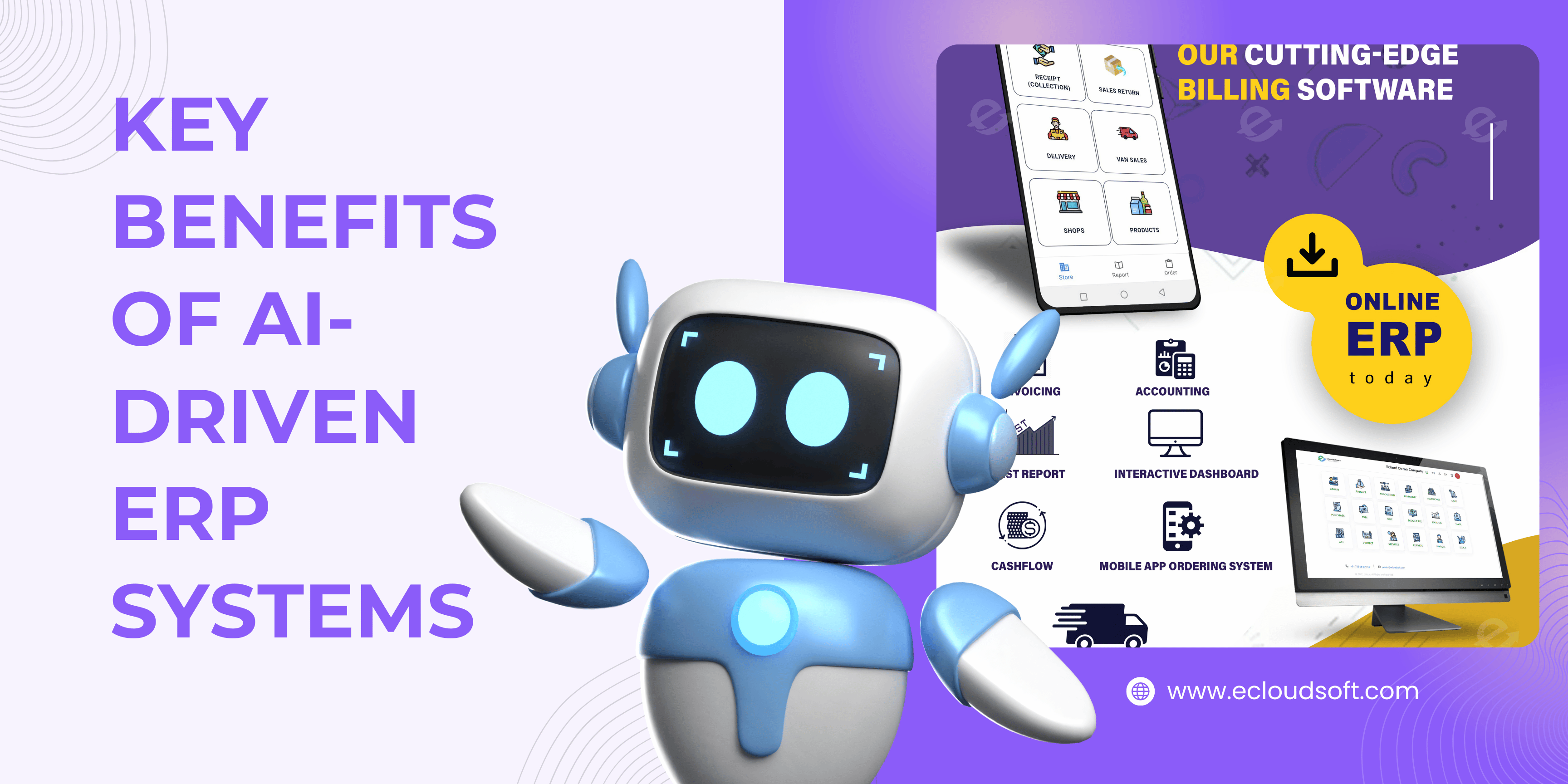
In today’s fast-paced digital landscape, businesses are increasingly seeking efficient, integrated solutions to manage their operations seamlessly. Traditional ERP (Enterprise Resource Planning) systems have served as the backbone of business processes, but with recent advances in AI and automation in ERP system, these solutions are evolving to offer unprecedented levels of insight, efficiency, and functionality. This new generation of ERP solutions not only manages core processes but also actively drives business growth by streamlining operations across departments—from production to customer service.
The Shift to AI and Automation in ERP Systems
The integration of AI and automation into ERP system marks a transformative shift. AI can analyze vast datasets to identify patterns and optimize decisions, while automation handle repetitive tasks and ensure process consistency. These capabilities are crucial in industries like food manufacturing, where precision and compliance matter. With AI and automation in ERP systems, modern ERPs offer proactive, predictive, and adaptive solutions.
Key Benefits of AI-Driven ERP Systems
- Enhanced Efficiency through Automation
One of the primary advantages of integrating AI with ERP is the automation of routine tasks. For example, production and warehouse management benefit when automation handles tasks like inventory tracking, order updates, and billing. This not only reduces human error but also frees up employees to focus on high-value activities, thus boosting overall productivity.
- Real-Time Data Insights and Predictive Analytics
AI-powered ERPs provide real-time data insights, allowing managers to make informed decisions quickly. Predictive analytics helps companies anticipate demand, optimize inventory levels, and manage the supply chain more efficiently. This capability is especially useful in sectors like food distribution, where perishable inventory requires precise management to minimize waste and maximize profitability.
- Improved Customer Experience with AI Chatbots
AI-driven chatbots are redefining customer engagement by handling inquiries, tracking orders, and even managing after-sales support autonomously. A good example of this is the AI chatbot integrated within Ecloud ERP, which offers a 24/7 virtual assistant for sales inquiries, product feature explanations, order tracking, and after-sales support. This continuous, responsive service enhances the customer experience, improves satisfaction rates, and reduces the strain on human customer service teams.
- Seamless Mobile Integration for Field Operations
For industries like food distribution, field operations are critical. Mobile ERP apps enable delivery personnel to access data, and manage distribution, ensuring real-time updates and smooth information flow.
- End-to-End Connectivity and Unified Data
The modern ERP system, like Ecloud ERP, offers end-to-end connectivity between different modules—production, warehouse, inventory, finance, and CRM—all of which communicate seamlessly. This connectivity ensures that departments operate in sync, enabling a single source of truth across the organization. Businesses with this unified data access can make faster, more accurate decisions and respond dynamically to changes in demand or supply.
Real-World Use Case: Ecloud ERP’s Transformation with AI and Automation in ERP system
Ecloud ERP is a prime example of how AI and automation are transforming traditional ERP systems. Designed for industries like food manufacturing, it combines production, inventory, finance modules with advanced automation tools. Its AI-powered chatbot not only manages sales inquiries but also supports after-sales processes through email automation and proactive customer support. Additionally, by integrating a mobile app for distribution, payment collection, and order management, Ecloud ERP offers a streamlined approach to managing field operations.
Ecloud ERP integrates eCommerce, store management, and billing, creates a connected ecosystem that optimizes supply chains, customer interactions, and efficiency.
The Future of ERP: Greater Intelligence, Agility, and Integration
As AI and automation continue to evolve, the future of ERP systems promises to deliver even greater intelligence, agility, and integration. Here’s what we can expect:
- Proactive Decision-Making: ERPs will become increasingly adept at anticipating problems before they arise, allowing businesses to take preventive action.
- Greater Personalization: AI will enable ERPs to provide personalized insights and recommendations, making workflows more efficient and role specific.
- Expanded Use of IoT: As IoT technology matures, ERPs will connect to devices, providing real-time data for better operational insights.
Conclusion
The integration of AI and automation into ERP systems is reshaping business operations, offering organizations new ways to improve productivity, customer satisfaction, and agility. Ecloud ERP exemplifies this transformation by combining core ERP functionalities with AI-driven automation and seamless connectivity, helping businesses—especially in industries like food manufacturing and distribution—operate more efficiently and competitively.
Adopting AI-enhanced ERPs will become a necessity for businesses to stay competitive in a tech-driven world.